They deserve honour
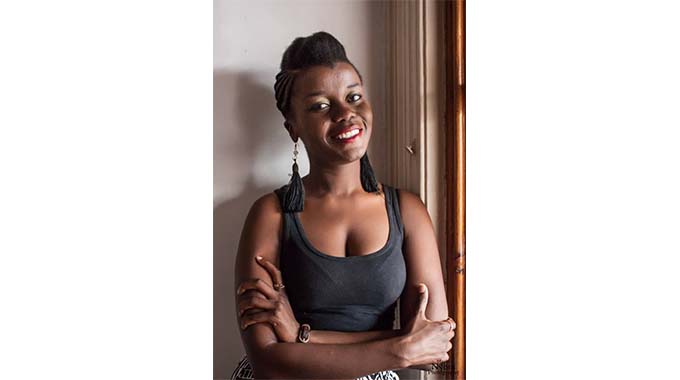
Nqobile Tshili and Bongani Ndlovu, Chronicle Reporters
IT’S no longer a man’s world as women are fast getting their time in the sun.
Chronicle yesterday, as part of celebrating International Women’s Day that falls on March 8, spoke to some women who have achieved firsts in their respective fields or professions.
Among those who have made it in recent years are the Gems, the women’s netball national team which qualified for the first time and starred at the 2019 edition of the World Cup in England.
Their heart-warming and exhilarating performances captured the world and their captain at the time Ms Perpetual Siyachitema said for her it was like any day in the office.
“For me playing and captaining my nation there was a piece of cake,” said Ms Siyachitema.
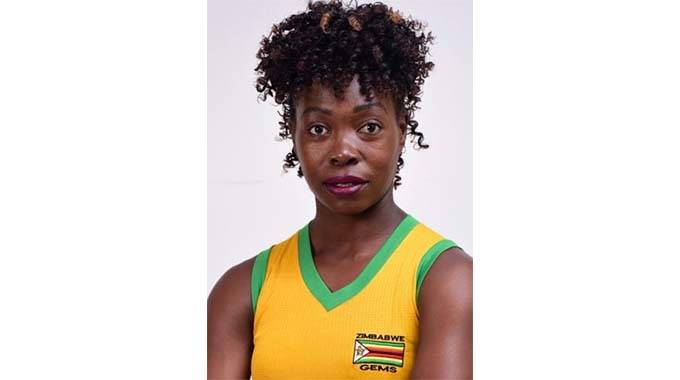
Perpertual Siyacitema
This was because she saw her opponents as equals and believed they could beat them in the game.
“Once your captain is confident, once your captain is cool with everything, I think it is much easier for the team.
I used to talk to them and tell them that our opponents are ladies and we are ladies, they run, we can run, and we do almost the same thing. So, there was no need for us to be worried about what they can do,” said Ms Siyachitema.
The now retired Siyachitema, who has ambitions in coaching the Gems, said in celebrating Women’s day she encourages fellow women to do whatever they set their minds on.
“As a woman, my message today is that we should fight in what we believe in, don’t let anyone tell you what you can and cannot do. Do something, go for it and just do it,” said Ms Siyachitema.
Renowned and veteran author Mrs Barbra Makhalisa-Nkala was the first woman to establish and run her own book publishing house: Radiant Publishing House in 2005.

Barbara Makhalisa-Nkala
She has also been writing books for years with her first book Qilindini being published in 1969.
Mrs Makhalisa-Nkala has worked as National Director of the International Bible Society covering Zimbabwe and coordinating Malawi. During her time, she coordinated the translation of the Bible into isiNdebele and chiShona.
“When I left the organisation around 2001, I attended a workshop on Christian writing in 2005, by Cook Communication in the United States of America. This is where the idea of coming up with a publishing house was born and when I returned to Zimbabwe, I started Radiant Publishing House. We have released some books here and there. It’s a small individual publishing house, publishing one book per year, but I always celebrate this,” she said.
Mrs Makhalisa- Nkala who has written numerous books, also worked for Longman Publishers at one time.
Her 1977 book Umendo was a set book for about 30 years in the Zimbabwean education system.
Instead of this being a proud moment, for her it showed a lack of growth in the industry.
“I was dismayed that my book that I wrote in 1974 and was published in 1977 was still a set book in schools for over 30 years. This is something that I can’t be proud of. This is because life and some of the issues that I was addressing all those years ago have changed. Somethings may be the same but most of the issues have changed,” said Mrs Makhalisa- Nkala. “But I’m happy that there are more up and coming writers.”
The first woman to win a National Art Merit Award in the Spoken Word Category Miss Tinashe Tafirenyika said more needs to be done for female artistes.

Tinashe Tafirenyika
“It took a long time for the Spoken Word or poetry to be recognised as being an art form and then it took even longer for a woman to be awarded. Last year a woman Sithembile Siqhoza- Ndebele won. But imagine if for years they have been ignoring a certain artform, imagine the women who are already marginalised by society. Let’s just say to anyone, name a spoken word poet from Zimbabwe, the first names that roll out of people’s mouths are Albert Nyathi or Ngqindi, not one female poet,” said Miss Tafirenyika.
She won the NAMA in 2017 and 2018. In the inaugural Bulawayo Arts Awards, Miss Tafirenyika won a gong for her Spoken Word exploits.
Miss Tafirenyika said this was the opportune time for more and more female heroes to be recognised as history has always propped up men.
“A lot of the female poet’s history has been erased because it’s not only Albert Nyathi who did poetry, there are women who did it but where are their names in history? What we need to realise is that unless we are intentional in documenting women who have been there in the arts, their history will be lost,” said Miss Tafirenyika.
“Even across the African liberation movements, it’s mostly men or if a woman is mentioned, it’s about her supportive role in her husband’s legacy. We haven’t heard enough about the work that they have done.”
University of Zimbabwe first female student representative council president Miss Abiona Mataranyika broke the ceiling as the first female to lead the institution’s students’ body since its formation more than 60 years ago.

Abiona Mataranyika
She said this was not just fulfilling for her but should inspire other women to challenge societal barriers.
“Being the first SRC president at UZ after so many years, is not just for personal glory. But I also set an example that women can become leaders in all areas, even those positions that have been set aside for men. I have inspired other female students that they can occupy positions occupied by men,” said Miss Mataranyika.
She said she occupied the position at a time when students are facing a lot of challenges due to Covid-19 and with her team, they had to represent the interest of the students.
Like Miss Mataranyaka, Kwekwe mayor councillor Angeline Kasipo made history in the 2018 general elections as she was voted Kwekwe’s first female Mayor.
Cllr Kasipo said holding the Mayoral position is proof that women can lead even at the highest positions.
“(Being the first female mayor) It’s very challenging, very encouraging, and very satisfying as well. It’s satisfying because you know you can do the job and as a woman and bring in a different perspective on the developmental agenda. As a woman I focus on issues to do with health and hygiene as well as access to water because these are issues that affect women more. I lead from experience hence I can deliver better than men,” said Cllr Kasipo.

Mayor Councillor Angeline Kasipo
She however said leading was not a walk in the park as she still has to deal with her male counterparts who enjoy some level of entitlements especially when dealing with women.
Cllr Kasipo said women should continuously strive to do better than men as they will be doubted throughout their leadership endeavours.
“It’s challenging because I work in a male dominated field, people don’t think that as a woman I can do it. As a woman I have to continuously prove myself unlike men. As women we just need the courage, we just need to know that we can do it. Other women have done it before us, other women have held bigger positions before us so it can be done. My message to women and other authorities is that they have to give women a chance to hold these decision-making positions. Women bring a different perspective to leadership because women are also mothers and house wives so they understand some of the issues,” said Cllr Kasipo.
Filmmaker Mrs Priscilla Sithole-Ncube, who runs Ibhayiskhopho Films said she set up the film school in the 1990s, the first in the country to be run by a woman because she wanted to help women learn how to make film as she experienced discrimination when she tried to do so.
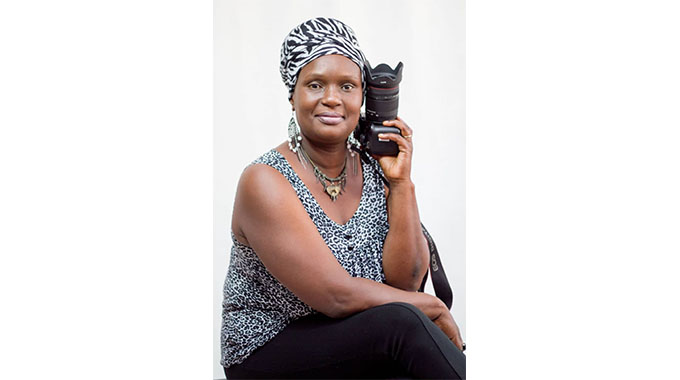
Priscilla Sithole
“I’m a survivor of violence against women in the film industry not a victim that’s what I always say to people. I know about how people have discriminated against women in the film industry because I have experienced it as I have been in the industry for a long time.
“Working under someone, as a person and a professional, you won’t grow. So, I wanted to grow and also, I want to leave behind a legacy, ” said Mr Sithole-Ncube.
She said finding funding from banks and other financial institutions has been hard for her as a woman and an artiste.
“When running an organisation as a woman we get challenges such as finding resources. I’ve knocked on most if not all the banks and they now know me with proposals for loans. But most of the time they turn it down and they are complacent. They don’t understand art in the first place so they don’t fund anything artistic and to make it worse, the request is from a woman,” said Sithole.
She said most women filmmakers do not own equipment and most men do not want to help teach women.
Most importantly, Sithole said she wants to establish a hub that is women friendly.
“I established this in the 90s and I was inspired by us watching Amabhayisikhopho, so I decided to set up a film school to teach women how to make film. Most of them are male dominated so they aren’t accessible to women,” said Mrs Sithole-Ncube.
It’s not going to be a training only; I’m setting up a hub so that women can access equipment for them to do film. This hub will also be a safe space for women. It will be woman friendly where even in the toilets there will be something like sanitary pads for them, which isn’t being thought about in this male dominated life we are living.”
Dr Agnes Mahomva, who is the country’s Covid-19 national coordinator as the medical field has come of age for most female practitioners.
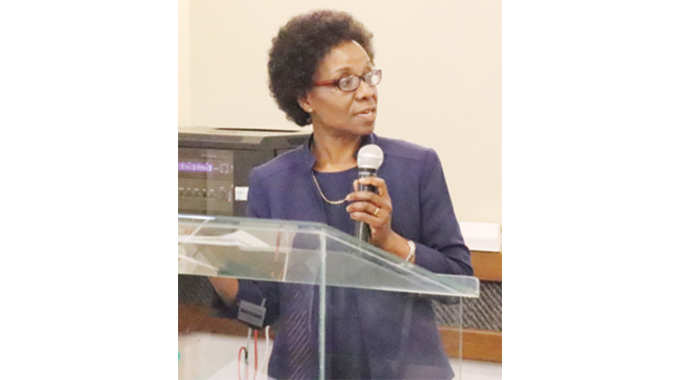
Dr Agnes Mahomva
She paid tribute to some of the pioneer female doctors such as Prof Nato and Prof Chiratidzo Ndlovu describing them as trailblazers among female medical practitioners
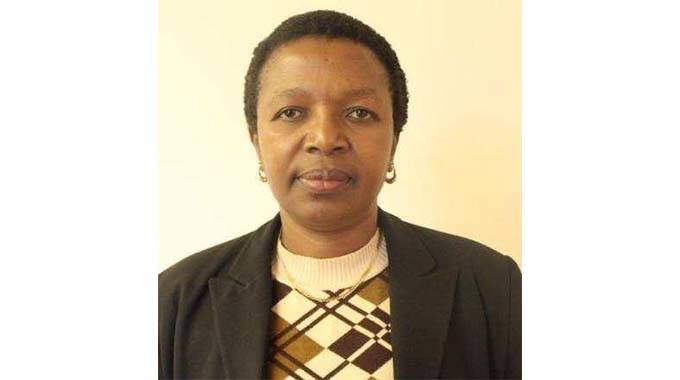
Prof Chiratidzo Ndlovu
Dr Mahomva said even herself did not find it easy to study medicine during her heydays but through determination she pulled through.
“It hasn’t been easy and when people say it’s a man’s world that is what they mean because some of these professions have traditionally been a preserve of men. But a lot of women are now practicing medicine but I can tell you that way back even in class male lecturers were always after the female students because they seemed to believe we could not make it.
So, it has been a long journey but at the end of the day if you are determined and you don’t feel sorry for yourself you definitely don’t look at the negative but the positives. Whatever challenges, you say how can I use this challenge to my advantage and keep moving and you will end up getting more support,” said Dr Mahomva.
She paid tribute to some men who have supported the women empowerment agenda.
But it has not always been smooth sailing as they still find resistance from society to get recognition.
Women’s University in Africa founder and Vice Chancellor Professor Hope Sadza said while men are naturally born into leadership positions, women have struggled to get recognition even where they are qualified.

Professor Hope Sadza
She said she founded the Women’s University in Africa in 2002 as a platform to provide confidence for women as they studied without feeling intimidated by men.
Prof Sadza said looking back at her project, it was encouraging that some women have started challenging for leadership positions previously dominated by men.
“It has been hard but I kept on wanting to make a difference in the field of men because for women we have to fight for most of these things whereas for men they have got it already laid out for them. I think the women have just realised that we have the same brains as men and we can do it. Before they were so frightened, they were doubting their capabilities. We started a Women’s University because we wanted to prove that we can do it. The message to women is to keep on pushing the cart and do not doubt your abilities,” said Prof Sadza.
“Just say I am good as a man and I will make it. Don’t start by always saying, we never got the chance and we might fail, what if we fail? The word failure does not come into the discussion. Just find a way to make it.”
National University of Science and Technology senior lecturer Dr Thembekile Ncube has taken a leaf from Prof Sadza nurturing female academics at Nust.

Dr Thembekile Ncube
Dr Ncube has since founded the Nust-Academic Women Research Group whose aim is to empower women.
“Our main focus was to empower women who are academic and researchers before we expanded the portfolio to target women and girls in general. Our objective is to empower women to be leaders, entrepreneurs, innovators and quality researchers.
Our world in academia is male dominated and we wanted to empower each other so that we could rise as women collectively. However, when we began, I faced resistance from some of my male counterparts who were saying we are trying the Beijing movement again,” said Dr Ncube.
She said her organisation prides itself for encouraging women to further their studies and they have since produced professors in their ranks.
“We have motivated women producing two professors, we have about 10 women who have obtained doctorates who are part of us. We have several doing masters studies and the last time I checked we had seven who are masters’ holders.
Among our achievements we have even spoken to girls at schools as we believe we have to motivate the children at grassroot level, talk to them as a professor or Dr face to face as opposed to them only seeing professionals through the media. This will motivate them to show that goals are achievable.”- Follow on Twitter @nqotshili/@bonganinkunzi

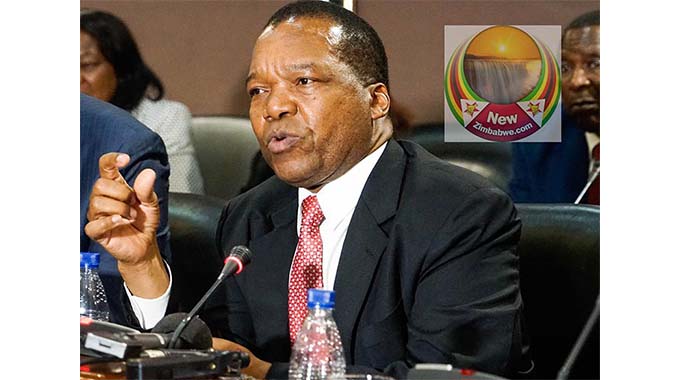









Comments